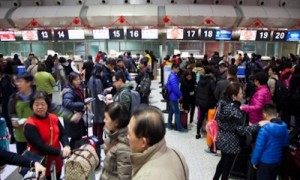Section 301 of the Trade Act of 1974 is "the principal statutory authority under which the US may impose trade sanctions on foreign countries," according to the website of the US Department of Commerce. The website said the section will be applied when negotiations to remove the "offending trade practice" fail.
The Trade Act of 1974 was enacted in January 1975, creating fast track authority for the US president to negotiate trade agreements.
It enables the US to take a unilateral action outside the World Trade Organization (WTO) process.
Section 301 has not led to any trade sanctions since the WTO was founded in 1995 and the latest adoption was in 2010 by a labor union in the US rather than the government.
If the USTR follows the Trump administration's plan Monday, there will be a Section 301 investigation that could last until next year and then the US could take a series of measures against China, including implementing steep tariffs and rescinding business licenses.







